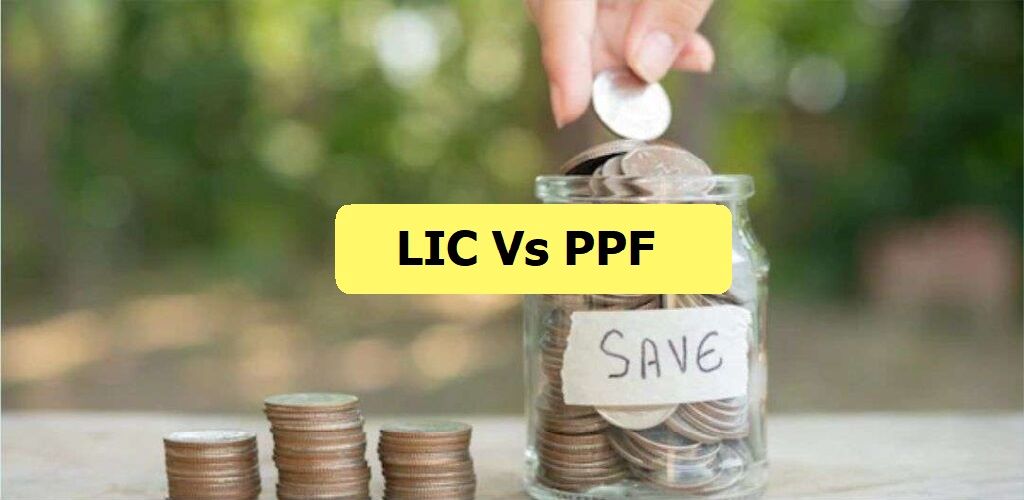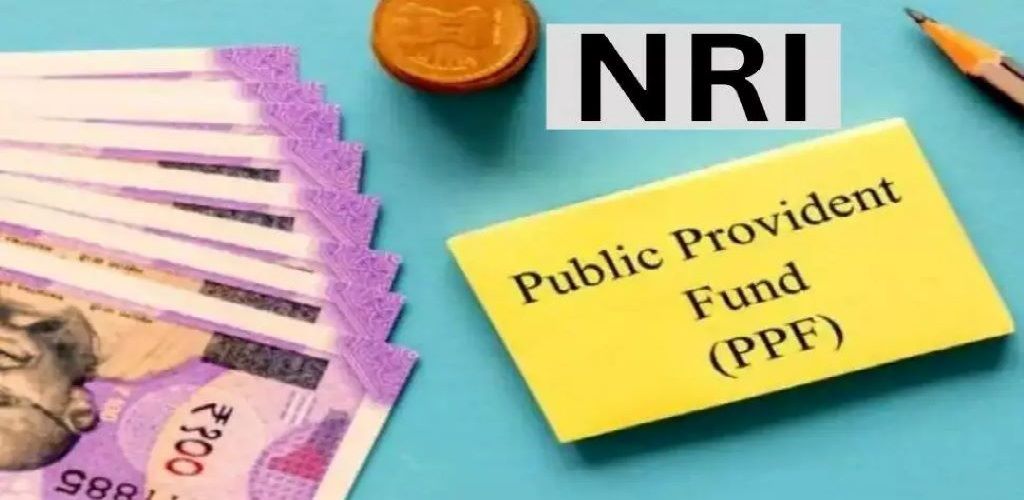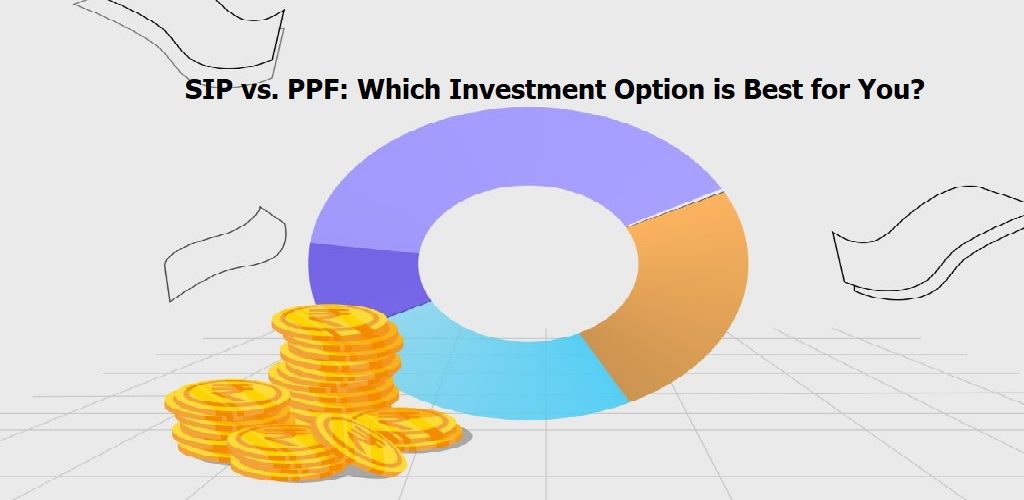Fixed Deposits (FDs) and Recurring Deposits (RDs) stand out as widely favored investment avenues in India, particularly for those seeking low-risk options. Investing in an FD or RD offers a significant advantage in the form of assured returns over a predetermined period, devoid of any associated risks. Compared to equity investments, Bank Fixed Deposits and Recurring Deposits prove to be more secure choices, given their non-market-linked nature and provision of a consistent rate of return.
In this blog, we delve into a comprehensive exploration of both investment options, providing insights into their meanings, highlighting the distinctions between Recurring Deposits (RDs) and Fixed Deposits (FDs), and ultimately guiding you to determine the better-suited option for your financial goals.
What is a Fixed Deposit?
Fixed deposits, alternatively referred to as term deposits or time deposits, represent a financial instrument provided by both banks and non-banking financial companies (NBFCs) to their clientele. In this investment avenue, individuals commit a specific amount of money for a predetermined duration at a fixed rate of interest. The interest rate can differ among financial institutions, generally exceeding the rates offered on standard savings accounts.
These fixed deposits come with diverse maturity periods, spanning from relatively brief tenures such as 7-14 days to more extended periods extending up to 10 years. This flexibility allows investors to choose a timeframe that aligns with their financial objectives and preferences.
Exploring the Financial Landscape: A Guide to Various Types of Fixed Deposits
Before allocating funds to your fixed deposit, it’s crucial to familiarize yourself with the various types of fixed deposits available in the market. Explore further to gain a deeper understanding:
- Standard Fixed Deposit
A standard fixed deposit entails an individual investing a specific sum of money for a predetermined duration at a fixed interest rate. The tenure for a standard fixed deposit typically ranges from 7 days to 10 years. This represents the most commonly chosen FD option among stakeholders due to its simplicity and flexibility.
- Special Fixed Deposit
Special Fixed Deposits earn their “special” designation because they are typically available for a specific time frame, often falling within the range of 290 days to 390 days. These specialized FDs distinguish themselves by offering a higher interest rate compared to standard fixed deposits.
- Tax saving Fixed Deposit
In contrast to Standard Fixed Deposits, Tax-Saving Fixed Deposits come with a minimum lock-in period of 5 years. The invested amount qualifies for tax exemption under section 80C of the Income Tax Act, 1961. However, it’s important to note that while the principal amount enjoys tax benefits, the interest earned from the FD is subject to taxation.
- Floating Fixed Deposit
In a floating fixed deposit, the interest rate is subject to periodic adjustments, typically on a quarterly or yearly basis. This dynamic feature allows depositors to benefit from changes in the interest rate over time. Unlike a traditional fixed deposit with a fixed interest rate throughout the tenure, a floating fixed deposit provides the advantage of potentially capitalizing on higher interest rates in the market during the investment period.
- Corporate Fixed Deposits
Many companies and corporate entities extend the option of fixed deposits to investors. Although corporate fixed deposits often come with a higher interest rate compared to those offered by banks and NBFCs, it’s essential to note that the associated risk is elevated. Unlike bank and NBFC deposits, which benefit from backing and insurance coverage provided by entities like the Deposit Insurance and Credit Guarantee Corporation (DICGC), corporate fixed deposits lack this insurance.
What are the Key Features and Benefits of Fixed Deposits?
The following are some of the important key features and advantages of a fixed deposit to consider.
- Safe Investment Option
Fixed Deposits (FDs) are widely regarded as one of the safest investment options. The key attribute contributing to their safety is the provision of a fixed rate of interest, which remains unaffected by market fluctuations. This stability ensures that investors can rely on a predictable and assured return on their investment, making FDs a reliable and secure choice, especially for those who prioritize capital preservation and a steady income stream.
- Assured Rate of Interest
Fixed deposit (FD) holders enjoy the assurance of receiving a predetermined rate of interest on their deposited amount. To facilitate transparency and assist FD holders in assessing their returns, many banks offer online calculators. These calculators are available on the banks’ websites and enable depositors to compute the interest they will accrue upon maturity of the FD.
- Hassle-free investment
Investing in fixed deposits (FDs) is facilitated through a savings account. This can be done easily either by physically visiting a bank branch or through online investment platforms. Upon maturity, investors have the flexibility to either renew the FD for another term or opt to have the maturity amount credited back to their account.
- Compound Interest
Opting to reinvest the amount of your matured fixed deposit (FD) may make you eligible to earn compound interest. With compound interest, you not only earn interest on the initial principal amount of your FD but also on any interest that has accrued over time. This has the potential to lead to a higher overall return on your investment, as the interest compounds, allowing your money to grow more significantly over the extended period of reinvestment.
- Tax Saving
In India, several banks provide tax-saving fixed deposit (FD) options to their customers. These specific FDs offer individuals the opportunity to reduce their taxable income by investing a portion of their earnings in a fixed deposit. By doing so, investors can take advantage of the tax benefits provided under section 80C of the Income Tax Act, of 1961. The invested amount in these tax-saving FDs qualifies for the deduction, helping individuals lower their overall taxable income and, consequently, their tax liability.
- Flexible Tenure
Fixed deposits (FDs) offer a diverse range of terms that investors can select, spanning from short durations of 7 days to more extended periods of up to 10 years. These FDs serve versatile purposes, catering to both personal and business needs. For instance, if there’s a plan to access the funds after a specific period, investors can opt for a tax-saving FD with a lock-in period of, for example, 5 years.
- Loan against FD
Utilizing funds from a fixed deposit (FD) can be an advantageous alternative to taking out an unsecured loan with a higher interest rate. Individuals have the option to avail loans against their FDs, and these loans typically come with lower interest rates compared to the interest earned on the FD itself.
Importantly, opting for a loan against an FD does not necessitate the cancellation of the FD. The depositor can continue to earn interest on the FD while simultaneously using the funds obtained from the loan to meet their financial needs.
What is a Recurring Deposit?
A Recurring Deposit (RD) account is an investment tool enabling investors to make consistent monthly contributions, accumulating savings over a predetermined period. Investors have the flexibility to select the deposit tenure and monthly payment amount according to their convenience. RD schemes are often considered more flexible compared to fixed deposit schemes, making them a preferred choice for individuals looking to initiate an account to save money and build a contingency fund.
Exploring the Different Types of RDs Available
The following are the various types of RDs available.
- Regular RD Accounts
A regular Recurring Deposit (RD) account is designed for Indian residents aged 18 years or above. With this type of account, holders can deposit a fixed sum into the account once every month throughout a predetermined period, earning a fixed interest on the deposited amount. The method used for interest calculation, whether compound or simple interest, is determined by the account’s tenure.
- RD Accounts for Minors
Accounts for individuals below the age of 18, such as minors, can be opened under the supervision of their parents or guardians. Similar to regular RD accounts, these accounts involve setting a fixed monthly installment and tenure at the time of opening. The returns on these accounts may be comparable or slightly higher than those of regular RD accounts. This structure allows young savers to cultivate a habit of regular contributions and savings, providing them with a financial foundation for the future.
- RD Accounts for Senior Citizens
Banks often offer dedicated Recurring Deposit (RD) accounts for senior citizens, typically those aged above 60 years. In some instances, senior citizens may receive additional interest in their RD compared to regular customers. This additional benefit recognizes the unique financial needs and considerations of the senior demographic.
- NRE/NRO RD Accounts
Non-Resident Indians (NRIs) have the option to open Non-Resident External (NRE) and Non-Resident Ordinary (NRO) Recurring Deposit (RD) accounts. These accounts provide NRIs with a platform to earn a competitive interest rate and facilitate monthly savings. NRIs can use these accounts to accumulate savings on income earned both outside and inside India.
Why Recurring Deposits are a Powerful Tool for Financial Stability?
Here is the list of the key features and benefits of Recurring Deposits.
- Fixed Income Returns
Investing in an RD provides a guaranteed return at maturity. When individuals invest their money in an RD, they are informed of the predetermined interest rate from the outset. Additionally, one of the notable features of RDs is the stability in interest rates throughout the investment tenure.
- Option to Avail of a Loan
One significant advantage of recurring deposits is the option to avail of a loan against the deposited amount. Many issuers provide this facility, allowing individuals to access quick funds when needed. Typically, the maximum loan amount that can be availed is up to 90% of the investment made in the recurring deposit.
- Disciplined Savings
With a recurring deposit (RD) in your investment portfolio, or introducing it to your children from an early age, is an excellent way to instill the habit of saving. RDs, with their requirement of monthly investments, promote systematic saving. This regular and disciplined approach to saving can be particularly beneficial in cultivating a financial habit that lasts a lifetime.
- Low Minimum Investment Amount
One of the notable features of recurring deposits is their accessibility, making them inclusive for individuals with modest incomes. Although the minimum amount required to open an RD can vary among institutions, it’s common for RD accounts to be opened with a relatively low monthly investment. In many cases, individuals can start an RD with as little as Rs. 100 a month
- Flexible Tenure
One of the key advantages of recurring deposits (RDs) is their suitability for saving toward short-term goals. With RDs, individuals can systematically set aside funds monthly, making it a convenient and disciplined approach to saving. This makes RDs particularly well-suited for goals expected to materialize in the near term, typically within the next 6 to 12 months.
- High Liquidity
Recurring deposits offer a degree of liquidity, allowing individuals to withdraw the accumulated savings in case of emergencies. However, it’s important to note that there is usually a penalty associated with pre-withdrawal from an RD. While the penalty may vary among institutions, it is generally a small fee deducted from the interest earned or the principal amount.
- Low-risk savings
RDs stand out as a very safe and risk-free investment option when compared to other investment products like stocks or mutual funds. The fixed and predetermined interest rates offered by recurring deposits are not influenced by market fluctuations. This stability ensures that investors have confidence in receiving the agreed-upon returns at the end of their investment tenure.
Practical Illustration of FD Vs RD: What Gives You More Returns?
Certainly! Here’s an example comparing Fixed Deposit (FD) and Recurring Deposit (RD) using hypothetical values:
Scenario:
Let’s consider Mr. Patel, who wants to invest Rs. 60,000 for 1 year. He wants to compare the returns he would earn by investing in an FD and opening an RD.
Fixed Deposit:
Assuming a bank offers an interest rate of 6 % per annum for a 1-year FD.
- Investment: Rs. 60,000
- Interest Rate: 6 % per annum
- Tenure: 1 year
Calculation:
For example, if you deposit a sum of Rs. 60,000 for 1 year at 6% interest, you’ll earn estimated returns of Rs.3,682, taking the maturing amount to Rs.63,682.
Recurring Deposit:
For example, an individual, named Mr. Puneet Kumar, starts an RD account for an investment of Rs. 5,000 per month for a tenure of 1 year at an interest rate of 6.5%.
Let’s Calculate!
If we take the principal amount of Rs. 5,000, the estimated interest will come out to be Rs.2,144, taking the maturity amount after one year to Rs. 62,144.
Comparison: Let's Break Down the Contrasts Between FD and RD
Now that we have grasped the basics, let us understand what is the difference between FD and RD!
| Parameters | Fixed Deposit (FD) | Recurring Deposit (RD) |
| Deposit Frequency | Only once | Every month or quarter |
| Minimum Deposit | Rs. 100 | Rs. 1,000 |
| Tenure | 7 days to 10 years | 6 months to 10 years |
| Income Tax Saving Option | You can avail income tax benefit with a fixed deposit having 5 years of the lock-in period | Unavailable |
| Interest Pay-out | Monthly or quarterly pay-outs available | Most of the banks do not offer monthly or quarterly interest pay-out |
| Auto-Renewal Facility of the Scheme | The facility is available to FDs. | It is not available to RD schemes. |
| Taxes on the Schemes | Senior citizen depositors pay INR 50,000 in taxes on interest income exceeding INR 40,000. Should your PAN remain unsubmitted, a 20% reduction will be applied. | Senior citizen depositors are subject to INR 50,000 in taxes on interest income above INR 40,000. The tax rate is 10%. You will receive a 20% discount if your PAN is not submitted. |
| Investment Type | These are one-time investments that don’t entice depositors to make more. | RDs are monthly investment options that necessitate monthly contributions from participants for the duration of the program. Depositors will thereby form an investment habit. |
| Maturity Amount | The principal amount plus the interest that has accumulated in FDs is the maturity amount. | The maturity amount of an RD is the sum of all deposited funds plus interest. |
FD or RD dilemma? Which is the Best Investment Option to Consider?
Recurring deposits are preferable to fixed deposits for people who lack substantial funds to invest but can manage to set aside a small amount each month. Monthly deposits will be made, and at the end of the RD duration, the entire amount deposited, or the maturity amount, will be credited to your connected savings or current account.
However, a fixed deposit is the best investment choice if you have a large sum of money to invest all at once. Since the principle would be larger from the beginning, you can get greater interest.
Frequently Asked Questions
Compared to the RD interest rate, the FD interest rate is somewhat greater.
An RD is an option for any investor who wants to invest a certain amount of money every month but does not have a lump sum amount available right now.
No, until the account matures, you are unable to withdraw the money that was deposited into it. Your RD interest rates may decrease by one to two percent if you withdraw money too soon.
Yes, you can take early withdrawals from your fixed deposit if you require money immediately. You will, however, be charged a penalty.
Even if there is one missing installment, the RD account is still active. However, some banks cancel an RD account if the account holder fails to make more than a set number of installments.







